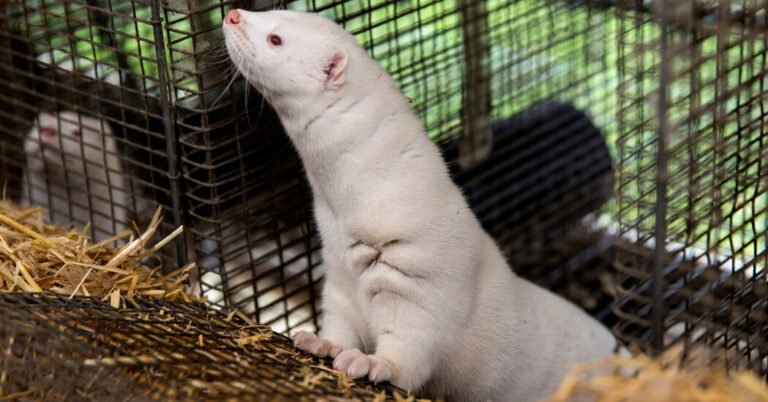Black Sea Grain Deal in Balance as Deadline Looms Again
Talks over the renewal of a deal that allows Ukraine to export its grain across the Black Sea in wartime were set to go down to the wire again, as the United Nations waited on Sunday for a response from Russia on a proposal that could revive the agreement and help keep global grain prices stable.
The Black Sea Grain Initiative, brokered by the United Nations and Turkey, is one of the very few areas of wartime cooperation between Ukraine and Russia. It was first agreed in summer last year, allowing Ukraine to restart the export of millions of tons of grain from its ports on the Black Sea despite Russia’s full-scale invasion, which began in February. But Russia has repeatedly threatened to pull out of the agreement, which has only been renewed for short periods. The latest deadline for expiry is midnight Monday.
In a bid to answer one of Russia’s key demands before this latest deadline, the United Nations secretary general, António Guterres, sent a letter to President Vladimir V. Putin of Russia last week with proposals that would “remove hurdles affecting financial transactions” through the country’s agricultural bank, “and simultaneously allow for the continued flow of Ukrainian grain through the Black Sea,” according to a U.N. statement.
Two days later, Mr. Putin called the deal a “one-sided game,” again threatening to pull out of it because of what he considered unmet conditions, Tass, Russia’s state news agency reported. “We may suspend our participation in this agreement. And if everyone reiterates that all promises given to us will be fulfilled — let them fulfill these promises. And we will immediately join this agreement. Again,” he said, according to Tass.
The invasion prompted the United States and European countries to tighten sanctions on Russia, effectively turning it into a pariah state. Some analysts have argued that Moscow is trying to use the grain deal as leverage to soften these sanctions.
Russia has complained that while the agreement has allowed Ukraine’s food exports to reach markets, the Western sanctions have restricted the sale of Russia’s agricultural products, and has demanded that steps to taken to facilitate its own exports of grain and fertilizers. The Kremlin’s other demands included restoring an ammonia pipeline that crosses Ukraine to facilitate exports, but Ukraine has refused to grant consent.
The deal was first brokered to alleviate a global food crisis exacerbated when Russia effectively blockaded Ukrainian ports at the start of its invasion. Ukraine is a major exporter of grain and other food crops, and global wheat prices soared.
Since the Black Sea Grain Initiative began, Ukraine has used it to export 32.8 million tonnes of grain and other foodstuffs, according to U.N. data, and the agreement has prevented hunger crises in some countries in the Middle East and Africa from worsening.
Under the deal, Ukrainian corn and wheat are the leading exports, with 90 percent of corn and 60 percent of wheat shipped to high or middle-income countries. The volumes shipped to low-income countries are roughly the same as before the invasion, according to U.N. data.
But the volume of grain exported from the Ukrainian ports in the Black Sea has been slowing in recent weeks, according to U.N. data. The same thing happened weeks before the deal’s previous expiry date, in May.
Under the terms of the deal, Ukraine’s ships have been given safe passage to the port in Istanbul, where inspectors checked them. Empty ships have also been checked in Istanbul en route to Ukraine’s ports to verify that they are not carrying weapons or other goods banned under the agreement.
Here’s what else is happening in the war:
-
Speaking to Russian state TV, Mr. Putin said in clips released on Sunday that Ukraine’s counteroffensive “has not had success,” and that Russian forces were holding out throughout the front line, even staging their own attacks in some areas. President Volodymyr Zelensky of Ukraine said late Friday that Russian forces were throwing “everything they can” at Kyiv’s troops fighting to retake land in the south and east, again emphasizing the grueling nature of the monthlong counteroffensive.
-
In the clips from the state TV interview, which airs on Sunday evening in Russia, Mr. Putin also said that the recent decision by the United States to send cluster munitions to Ukraine showed the scale of ammunition shortages facing Kyiv, adding that Russia may retaliate if these weapons are deployed on the battlefield. Mr. Putin falsely claimed that Russia had not used cluster munitions in Ukraine despite dozens of cases documented by the United Nations, mostly in the early months of the war.
The Russian president’s comments, which were released by the Kremlin on Sunday, raise the prospect of much wider deployment of cluster munitions in the conflict, which would threaten to cover the area of the fighting with unexploded ordnance for years, posing a significant risk to the civilian population.
-
Britain’s defense secretary, Ben Wallace, told The Sunday Times of London that he would resign from his post, likely in the coming months, after four years in the role. Britain has been one of Ukraine’s staunchest allies since Russia’s full-scale invasion began. Mr. Wallace said last week that Ukraine should show more gratitude for Britain’s military support, adding “We’re not Amazon,” comments that Prime Minister Rishi Sunak distanced himself from.
Check out our Latest News and Follow us at Facebook
Original Source







